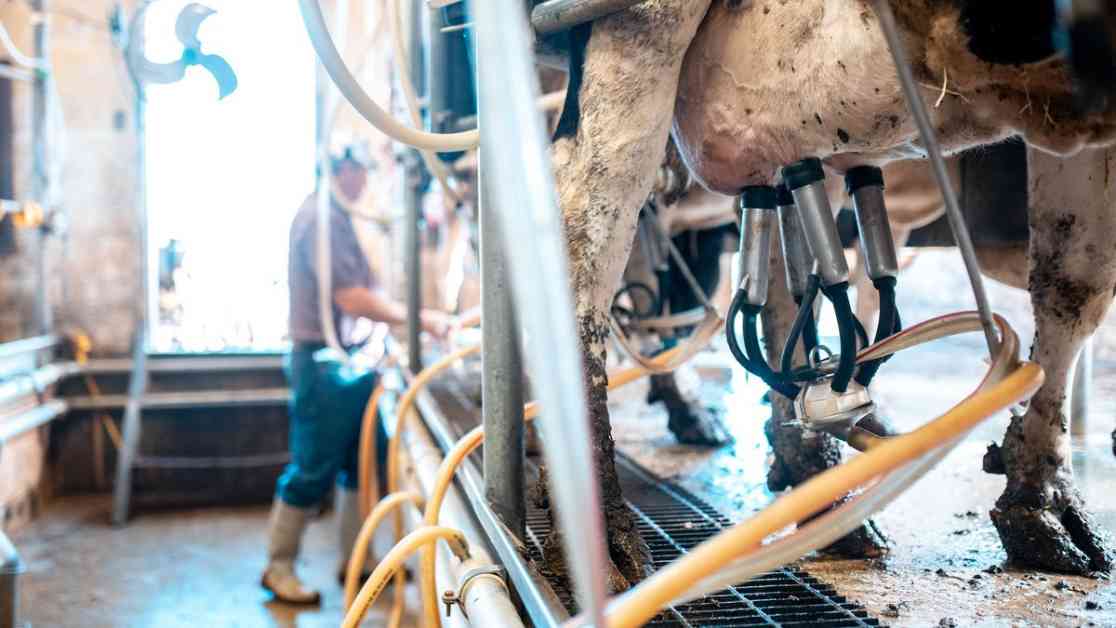US Dairies Required to Test Raw Milk for Bird Flu – New Regulations
In a groundbreaking move, U.S. dairies are now mandated to send samples of raw milk to the U.S. Department of Agriculture (USDA) for testing to detect the presence of bird flu. This new federal order, announced on December 6, aims to bolster ongoing efforts by authorities to monitor and track the spread of bird flu in dairy herds across the country.
The Importance of Testing
The USDA has reported that as of December 5, bird flu subtype H5N1 has been identified in 720 dairy herds in the U.S. this year alone. The concerning part is that at least 35 individuals have contracted bird flu from working with infected cows, with an additional 21 cases linked to exposure to sick birds. Moreover, two cases have unknown sources of infection, raising further alarm about the potential risks associated with the virus.
Enhanced Surveillance Measures
To address the escalating situation, the USDA previously required testing for H5N1 in lactating cows being transported across state lines, as well as the implementation of a voluntary Dairy Herd Status Program. However, the participation in the program has been limited, with only 75 herds across 17 states actively monitored.
The New Mandate
With the introduction of the federal order, bulk milk testing will become mandatory nationwide. The USDA Secretary, Tom Vilsack, emphasized that this new testing strategy will provide a comprehensive roadmap for states to safeguard the health of dairy herds and ensure the safety of farmers and farmworkers.
Key Provisions
The federal order entails that any entity handling milk intended for pasteurization must submit samples to the USDA upon request. Additionally, herd owners with cows testing positive for bird flu must provide essential information for disease tracking. Private laboratories and state veterinarians are also required to report any positive findings to the USDA promptly.
Preventing Further Spread
The primary objective of this rigorous testing initiative is to help authorities assess the extent of the outbreak and implement enhanced biosecurity measures to prevent further transmission among cattle. By closely monitoring the situation, officials can develop informed strategies to protect farmworkers and prevent the virus from spreading.
Stay Informed and Stay Safe
While there is currently no evidence of human-to-human transmission of H5N1, experts warn that a slight mutation in the virus could potentially lead to a pandemic. Hence, the proactive approach to testing and surveillance is crucial to containing the spread of bird flu and safeguarding public health.
It is essential to highlight that the commercial milk supply undergoes pasteurization to eliminate any potential contaminants, including H5N1. However, consuming unpasteurized or “raw” milk products poses a significant risk of infection and should be avoided.
Takeaway
The recent federal order mandating raw milk testing for bird flu underscores the importance of proactive measures to protect both animal and human health. By implementing robust surveillance protocols and stringent testing requirements, authorities aim to curb the spread of the virus and mitigate potential risks to the dairy industry and public safety.
Remember, knowledge is power, and staying informed is key to staying safe in uncertain times. Stay tuned for further updates on this developing situation and continue to prioritize your health and well-being.
Stay safe, stay informed, and together, we can overcome any challenge that comes our way.










